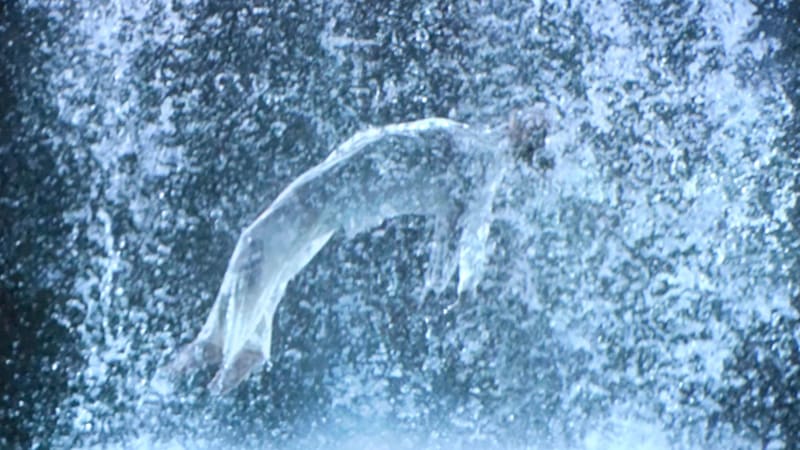Synopsis
As the curtain rises, Don Alvaro makes ready to flee with Leonora. Alas, the two lovers are surprised by the young woman’s father. Alvaro throws his pistols to the ground but one of them goes off and kills the father: destiny is pitiless and laughs at men’s fates. A grand fresco full of plot twists in which the father’s curse overshadows all, La Forza del destino, like Rigoletto and Il Trovatore, is also a work of its time. In 1861, Verdi agreed to become a parliamentary deputy in order to pursue his political ideals. However, the Risorgimento was flagging and the composer was assailed by doubts. A certain dark melancholy suffuses the score, where the motif of destiny recurs throughout alongside the idea of redemption. In Jean‑Claude Auvray’s production, opera becomes a place where dreams shatter against the wall of reality whilst there emerges a fragile yet intoxicatingly beautiful song of hope.
Duration : 3h50 with 2 intervals
Language : Italian
Surtitle : French / English
-
Opening
-
First part 80 min
-
Intermission 30 min
-
Second part 60 min
-
Intermission 20 min
-
Third part 40 min
-
End
Artists
Opera in four acts (1862)
Creative team
Cast
Original production by Jean-Claude Auvray, revival directed by Stephen Taylor
Orchestre et Chœurs de l’Opéra national de Paris
Coproduction avec le Gran Teatre del Liceu, Barcelone
Media
Access and services
Opéra Bastille
Place de la Bastille
75012 Paris
Public transport
Underground Bastille (lignes 1, 5 et 8), Gare de Lyon (RER)
Bus 29, 69, 76, 86, 87, 91, N01, N02, N11, N16
Calculate my routeCar park
Parking Indigo Opéra Bastille 1 avenue Daumesnil 75012 Paris
Book your spot at a reduced price-
Cloakrooms
Free cloakrooms are at your disposal. The comprehensive list of prohibited items is available here.
-
Bars
Reservation of drinks and light refreshments for the intervals is possible online up to 24 hours prior to your visit, or at the bars before each performance.
-
Boutiques
A selection of works items are available on our various boutiques: Online store and The Opéra Bastille Shop.
-
Last-minute tickets
Special reduced rates for people under the age of 28, unemployed and seniors over 65 are available.
-
Parking
You can park your car at the Indigo Opéra Bastille. It is located at 1 avenue Daumesnil, 75012 Paris.
In both our venues, discounted tickets are sold at the box offices from 30 minutes before the show:
- €35 tickets for under-28s, unemployed people (with documentary proof less than 3 months old) and senior citizens over 65 with non-taxable income (proof of tax exemption for the current year required)
- €70 tickets for senior citizens over 65
Get samples of the operas and ballets at the Paris Opera gift shops: programmes, books, recordings, and also stationery, jewellery, shirts, homeware and honey from Paris Opera.
Opéra Bastille
- Open 1h before performances and until performances end
- Get in from within the theatre’s public areas
- For more information: +33 1 40 01 17 82
Online
Opéra Bastille
Place de la Bastille
75012 Paris
Public transport
Underground Bastille (lignes 1, 5 et 8), Gare de Lyon (RER)
Bus 29, 69, 76, 86, 87, 91, N01, N02, N11, N16
Calculate my routeCar park
Parking Indigo Opéra Bastille 1 avenue Daumesnil 75012 Paris
Book your spot at a reduced price-
Cloakrooms
Free cloakrooms are at your disposal. The comprehensive list of prohibited items is available here.
-
Bars
Reservation of drinks and light refreshments for the intervals is possible online up to 24 hours prior to your visit, or at the bars before each performance.
-
Boutiques
A selection of works items are available on our various boutiques: Online store and The Opéra Bastille Shop.
-
Last-minute tickets
Special reduced rates for people under the age of 28, unemployed and seniors over 65 are available.
-
Parking
You can park your car at the Indigo Opéra Bastille. It is located at 1 avenue Daumesnil, 75012 Paris.
In both our venues, discounted tickets are sold at the box offices from 30 minutes before the show:
- €35 tickets for under-28s, unemployed people (with documentary proof less than 3 months old) and senior citizens over 65 with non-taxable income (proof of tax exemption for the current year required)
- €70 tickets for senior citizens over 65
Get samples of the operas and ballets at the Paris Opera gift shops: programmes, books, recordings, and also stationery, jewellery, shirts, homeware and honey from Paris Opera.
Opéra Bastille
- Open 1h before performances and until performances end
- Get in from within the theatre’s public areas
- For more information: +33 1 40 01 17 82
Online

Discover opera and ballet in another way

Dive into the Opera world and get insights on opera and pop culture or ballet and cinema. Scan this code to access all the quiz and blindtests on your mobile.

You will also like







































































